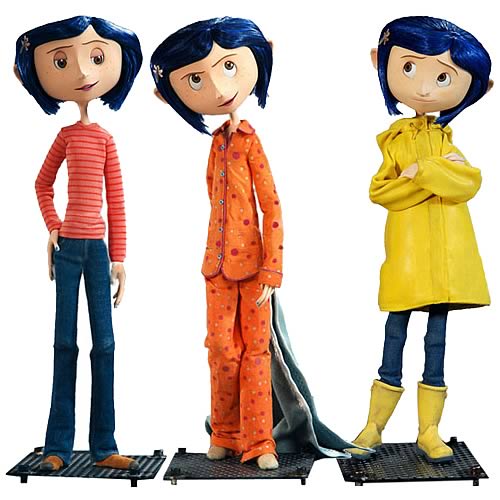This week, we talked in class about contemporary fantasy and stories by authors such as Neil Gaiman. I (regrettably) didn't get around to reading Anansi Boys this week, but in class we did watch Coraline and saw an interview with Gaiman and touched on that.
I loved the use of myth in Coraline because it was definitely set in a contemporary setting and very relatable to any kid having grown up in this modern technological era. The movie played on the "distant parent" trope, one created with the invention of the computer and with parents having too many things to do on the computer-- whether they be work or games. I personally know friends who have parents that are more addicted to the computer than they should be, and it can be very damaging to a kid who needs any kind of direction, supervision, or accountability.
So Coraline has to deal with moving away from her home to a rural area so that her parents can focus on their work (their computer work) and Coraline gets stuck trying to supervise herself however she can, whether it be avoiding the neighborhood boy or just finding something to keep herself occupied.
She discovers this fantasy world and becomes enthralled with it, without anything else to keep her occupied in life. I feel like this really speaks to the imaginary world that a child can cook up for him- or herself in the modern era, and how it can start to run rampant if not properly supervised.
The 'myth' in this story came from Coraline's very real invention of her imaginary world. This is by no means a concept that is unheard of being created by a child or otherwise, as I said before. Gaiman does something very special by making a fantasy book out of a very real situation, one having to do with neglect and an imagination run rampant-- he does bring the point home by giving the 'imagination' part very real implications in the real-world context, but the point still stands.
I think Gaiman put a modern twist on both the concept of Coraline and the idea of how the story stands as a myth on its own. This is for sure a reason why it's so popular.




